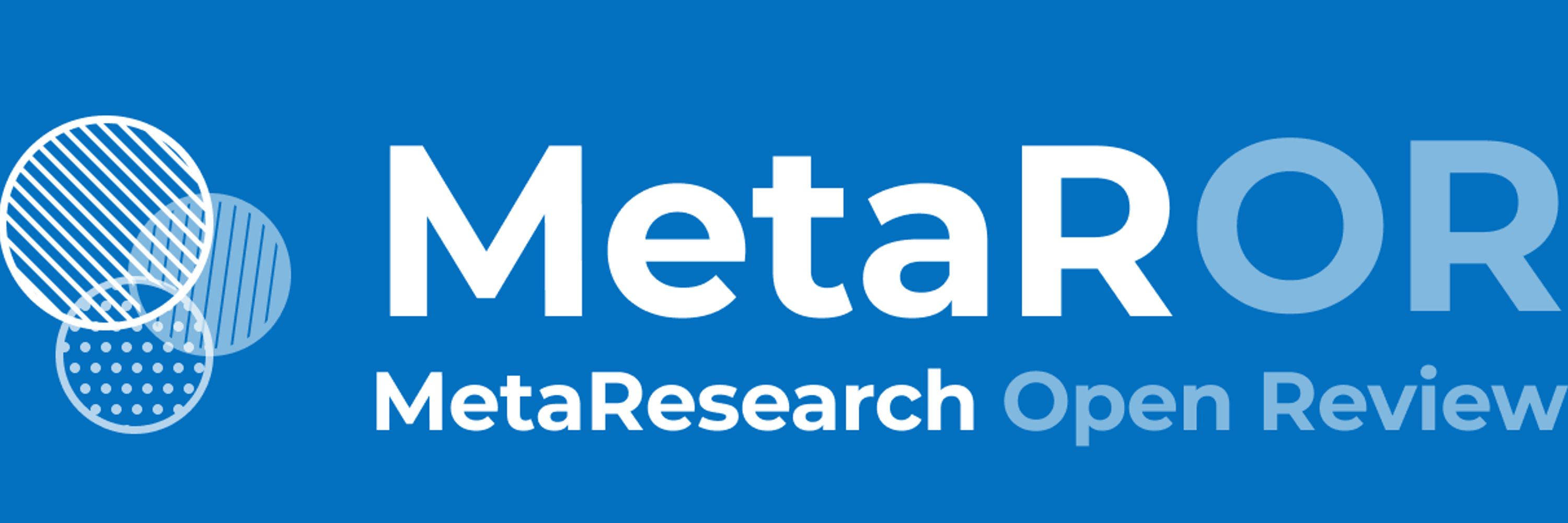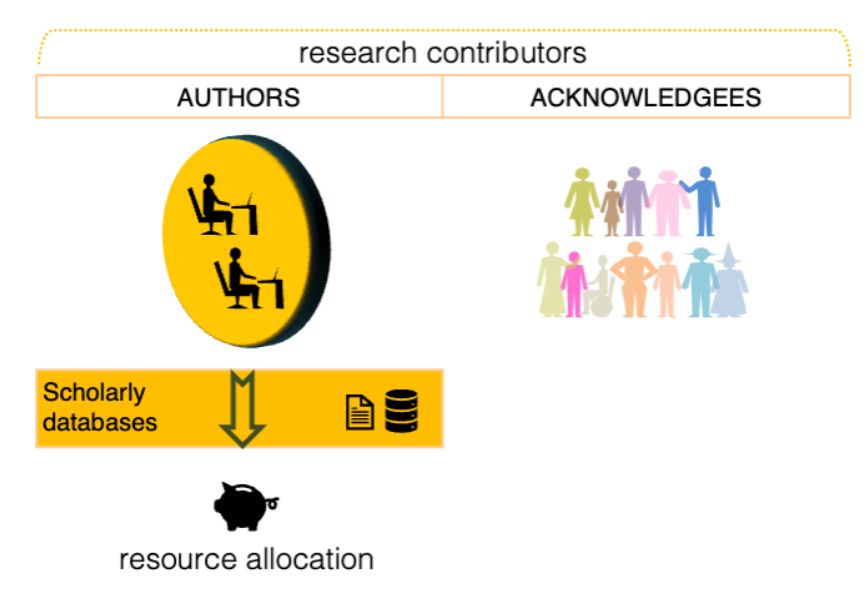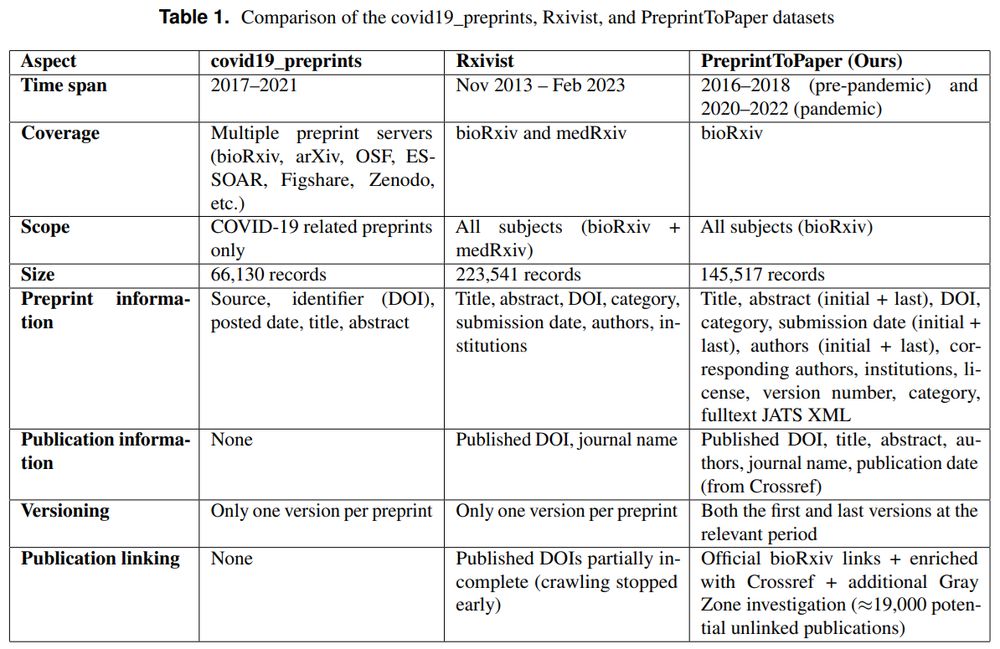


We wish Sarah all the best in her new role at our university!
www.universiteitleiden.nl/en/news/2025...

We wish Sarah all the best in her new role at our university!
www.universiteitleiden.nl/en/news/2025...
Very grateful to everyone who has contributed to the development of MetaROR!
Over the course of the year, we published 28 articles reviewed by 59 different reviewers.
[1/3]

Very grateful to everyone who has contributed to the development of MetaROR!
blogs.lse.ac.uk/impactofsoci... #AcademicSky #AcademicPublishing #OpenAccess #ScholComm

blogs.lse.ac.uk/impactofsoci... #AcademicSky #AcademicPublishing #OpenAccess #ScholComm
@danbrockington.bsky.social @aileenfyfe.bsky.social @stefhaustein.scholcommlab.ca for @lseimpactblog.bsky.social

@danbrockington.bsky.social @aileenfyfe.bsky.social @stefhaustein.scholcommlab.ca for @lseimpactblog.bsky.social
Led by @alexh.bsky.social and @aidybarnett.bsky.social
#AIMOS2025

Led by @alexh.bsky.social and @aidybarnett.bsky.social
#AIMOS2025
Very grateful to everyone who has contributed to the development of MetaROR!
Over the course of the year, we published 28 articles reviewed by 59 different reviewers.
[1/3]

Very grateful to everyone who has contributed to the development of MetaROR!

With @martonkovacs.bsky.social, @pietropollo.bsky.social, @philobolobstime.bsky.social, Losia Lagisz, & Mohammad Hosseini.

With @martonkovacs.bsky.social, @pietropollo.bsky.social, @philobolobstime.bsky.social, Losia Lagisz, & Mohammad Hosseini.
Article: arxiv.org/abs/2510.017...
Review: prereview.org/reviews/1762...
@biorxiv-medrxiv.bsky.social
@prereview.bsky.social
#PublishYourReviews

Article: arxiv.org/abs/2510.017...
Review: prereview.org/reviews/1762...
@biorxiv-medrxiv.bsky.social
@prereview.bsky.social
#PublishYourReviews

This aligns with some of the work we are doing at @cwts.nl and in @rorinstitute.bsky.social.
www.coalition-s.org/coalition-s-...
#OpenScience #ScholarlyComm #Plan_S #OpenAccess

This aligns with some of the work we are doing at @cwts.nl and in @rorinstitute.bsky.social.
This aligns with some of the work we are doing at @cwts.nl and in @rorinstitute.bsky.social.
www.coalition-s.org/coalition-s-...
#OpenScience #ScholarlyComm #Plan_S #OpenAccess

This aligns with some of the work we are doing at @cwts.nl and in @rorinstitute.bsky.social.
The event will showcase initiatives and discuss how this model can shape the future of scholarly communication: coar-repositories.org/news-updates...

The event will showcase initiatives and discuss how this model can shape the future of scholarly communication: coar-repositories.org/news-updates...
Congratulations on this amazing achievement!! 🥂
www.universiteitleiden.nl/en/news/2025...

"Universiteiten willen meer grip krijgen op hoe wetenschappelijk onderzoek wordt gepubliceerd en hoe we de autonomie van wetenschappers op ... publicatieprocessen kunnen verhogen."

"Universiteiten willen meer grip krijgen op hoe wetenschappelijk onderzoek wordt gepubliceerd en hoe we de autonomie van wetenschappers op ... publicatieprocessen kunnen verhogen."
openrxiv.org/enabling-rev...

openrxiv.org/enabling-rev...
"Universiteiten willen meer grip krijgen op hoe wetenschappelijk onderzoek wordt gepubliceerd en hoe we de autonomie van wetenschappers op ... publicatieprocessen kunnen verhogen."

"Universiteiten willen meer grip krijgen op hoe wetenschappelijk onderzoek wordt gepubliceerd en hoe we de autonomie van wetenschappers op ... publicatieprocessen kunnen verhogen."

Nice demonstration of the commitment of RoRI colleagues to MetaROR's publish-review-curate model!
Reviewers consider the work "valuable and timely", noting its relevance to reform initiatives like @coarassessment.bsky.social
👇 Read the assessment, reviews & full article here

Nice demonstration of the commitment of RoRI colleagues to MetaROR's publish-review-curate model!

🔗 Read more: www.cos.io/blog/lifecyc...

fd.nl/opinie/15757...
FD stuk is paywalled, maar is ook beschikbaar via:
docs.google.com/document/d/1...


